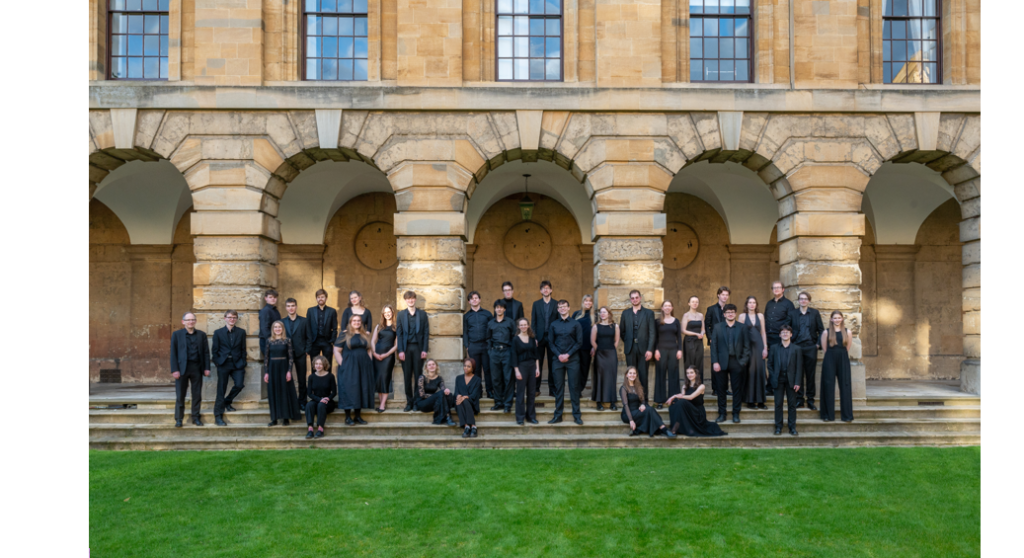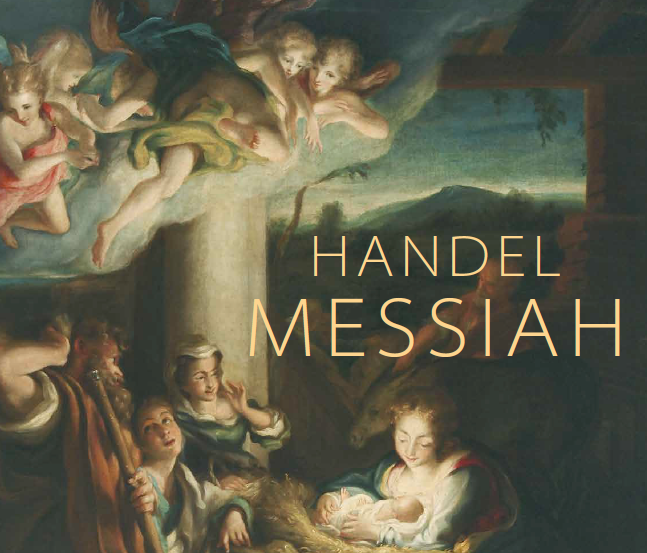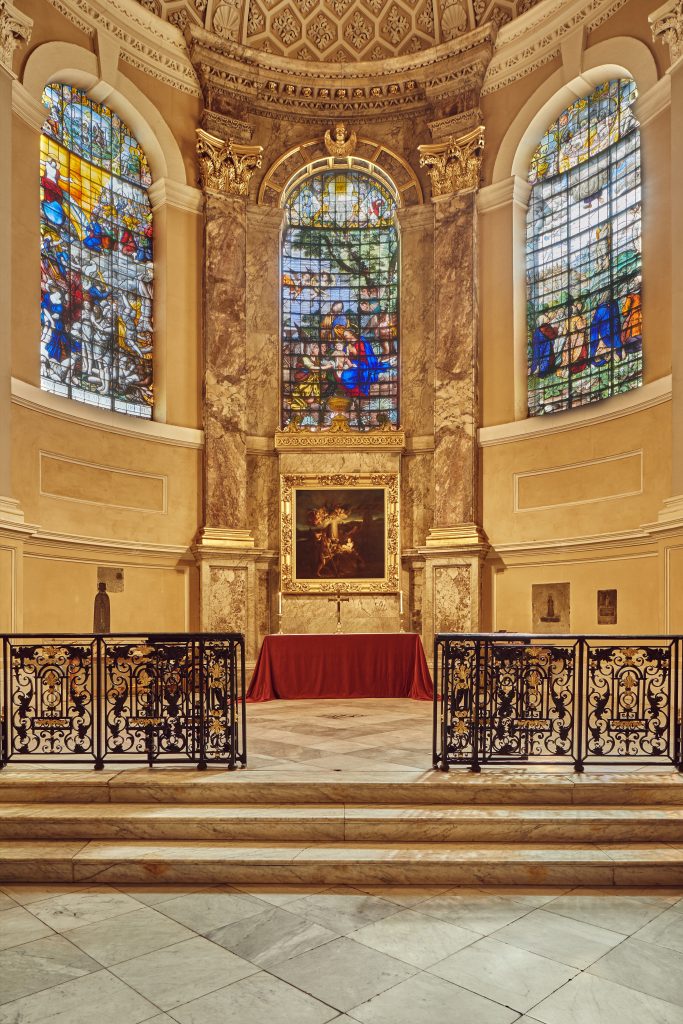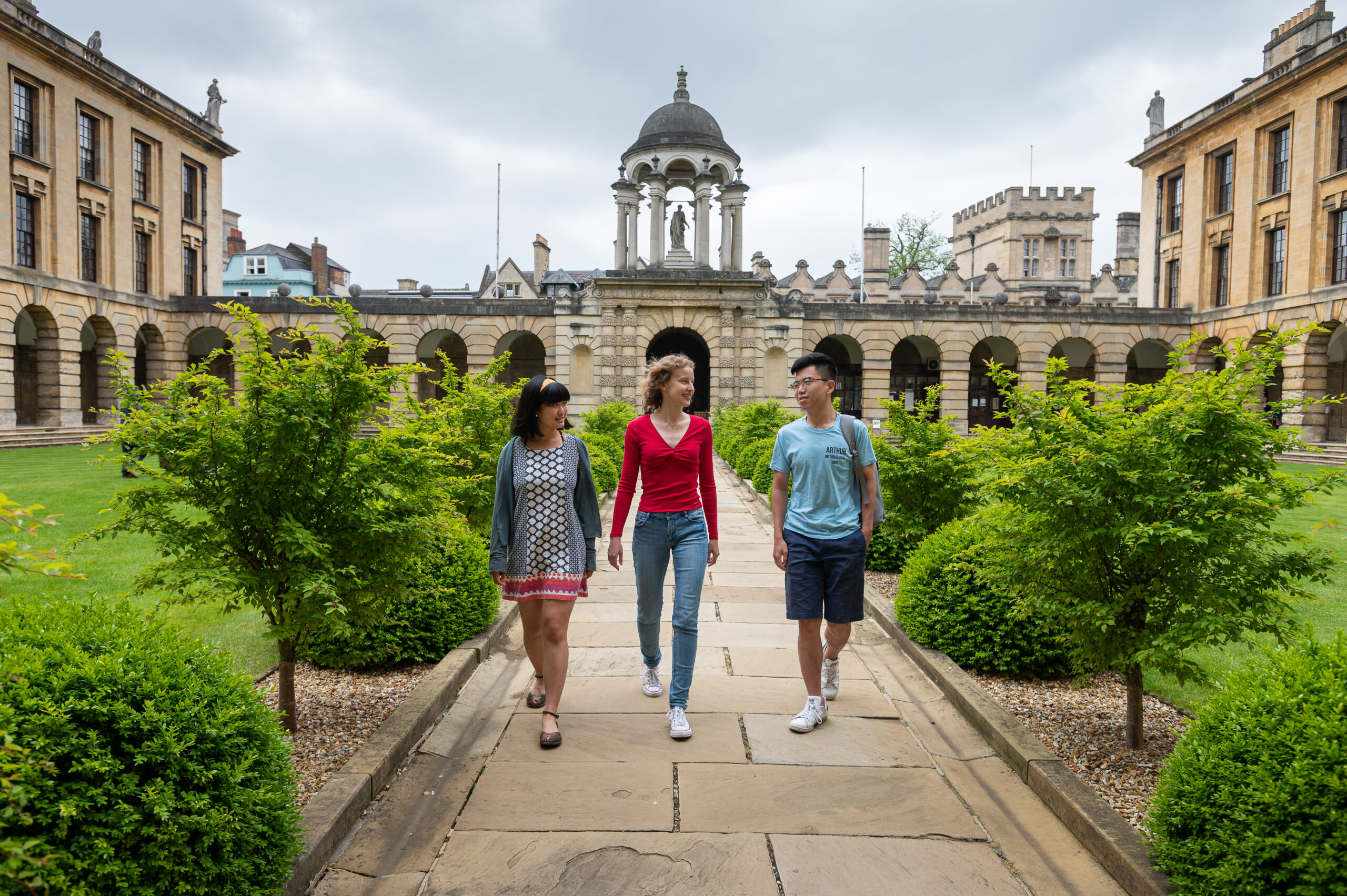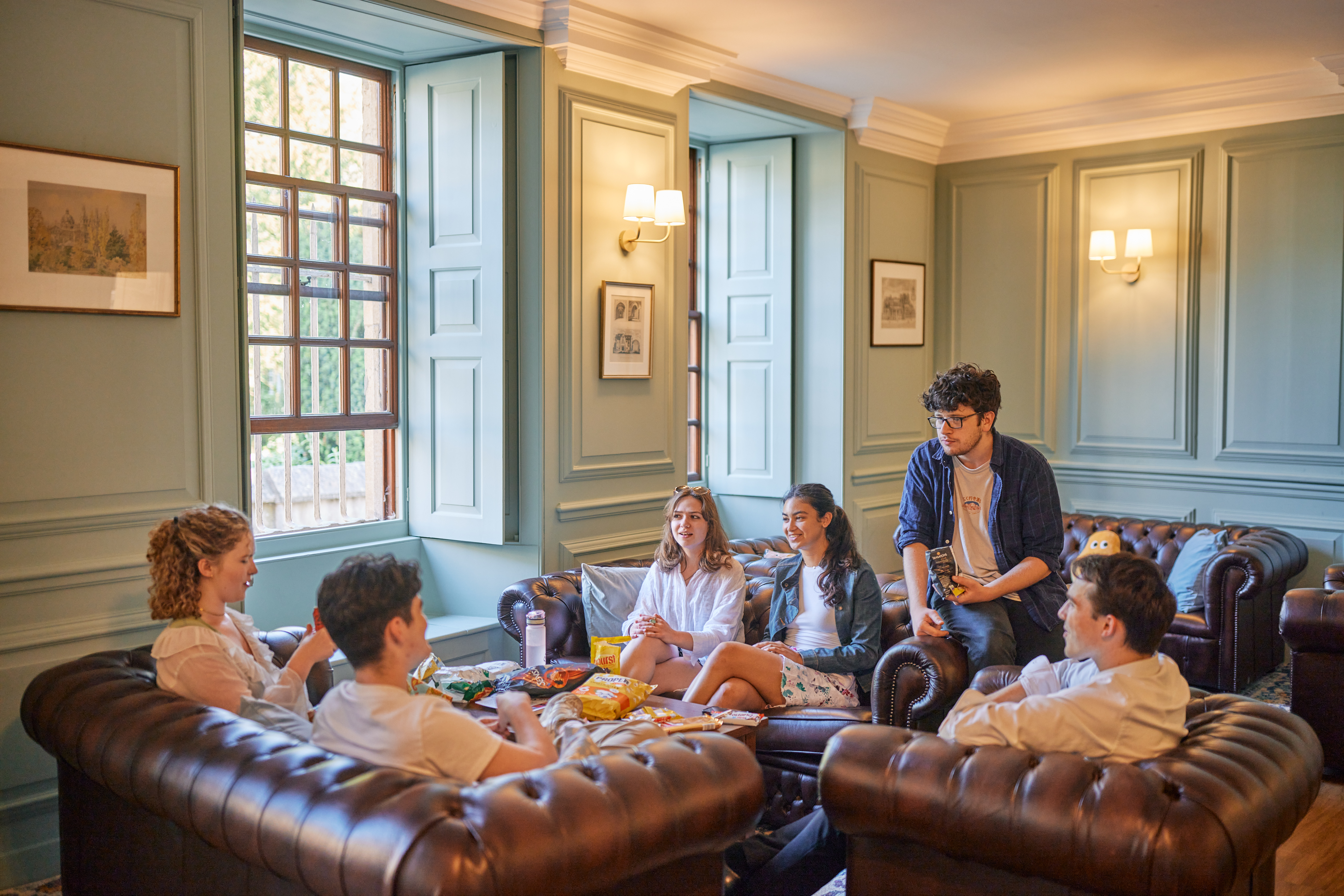The Choir
The Choir of The Queen’s College, Oxford is among the finest and most active university choirs in the UK.
An undoubted jewel in Britain’s choral scene.
BBC Music Magazine
Its extensive concert schedule involves appearances across the UK and abroad, including work with the Academy of Ancient Music, the Orchestra of the Age of Enlightenment, and the Oxford Philharmonic Orchestra. It regularly tours abroad, and concert tours have included Taiwan, China, the USA, Sri Lanka, Italy, Sardinia, Portugal, Spain, France, the Low Countries, Germany, and Sweden. The choir’s forthcoming engagements include a concert in the Festival de Gensac, France, and a recording of works by Kenneth Leighton, Rebecca Clarke, Harold Darke, and Gustav and Imogen Holst. The choir’s wide-ranging repertory includes a rich array of Renaissance and Baroque music and contemporary works. The group broadcasts regularly on BBC Radio, and during the academic year it provides the music for regular services in the splendid Baroque chapel of The Queen’s College.
Queen’s Choir’s CD releases are on the Signum Classics label. Its albums have topped the Specialist Classical Chart on two occasions, and its most recent release – That Sweet City – was named as Critics’ Choice 2024 in Gramophone. Carols from Queen’s enjoyed nine weeks in the Specialist Classical Charts, was ‘Drive Featured Album of the Week’ on Classic FM, and was a Telegraph Christmas pick. A New Heaven (2017) and The House of the Mind (2018) both went straight to no. 1 in the Specialist Classical Chart in their first week of sales; BBC Music Magazine commented that A New Heaven shows ‘the singers at their radiant best’ and Choir and Organ described The House of the Mind as ‘a gem of a disc’. 2019 saw the release of a recording of music by the great Tudor composer John Taverner, which received a Diapason d’or and was described by Diapason as ‘a splendid triumph of English choral art at its best’. Queen’s Choir has also recorded for film at the famous Abbey Road Studios, and appears on the Grammy-nominated soundtrack of the Warner-Brothers film Harry Potter and the Half- Blood Prince. The choir’s TV work has included Lucy Worsley’s A Merry Tudor Christmas (BBC2) in 2019.
The Chapel
The College was founded by Robert de Eglesfield in 1341 to be ‘a place of education and religion’ and the Chapel remains a place set apart for stillness and wonder in the heart of today’s busy College.
Education in a collegiate setting is about more than just degree outcomes. Those who study here have the opportunity to learn as part of a community, to fulfil their creative as well as academic gifts, and to explore and discover the values which will shape them in their life to come. Whether or not you choose to attend worship in the Chapel, its presence as a space for glorious music, quiet contemplation, and challenging preaching stands as an invitation to engage with your time at Oxford on a more than purely academic level.
Our current Chapel is three hundred years old, consecrated by the Archbishop of York on All Saints’ Day, 1 November 1719. It remains a space at the heart of the College where we express our life as a community: where we mark beginnings and endings, where we celebrate one another’s joys and stand in solidarity with those who are struggling, where we honour our history and pray for our future. Just to step into this hushed and hallowed space can bring perspective in a pressured Oxford term.
The Chapel is there for the whole College, and it is open throughout the day for any member of the College community. Regular services are conducted according to the practice of the Church of England, but they are open to all: it is the College Chapel, and as such it belongs to all members of the College, regardless of their own religious belief or affiliation. It is often in use as a rehearsal and performance space for musicians, and there are also times set apart each day for quietness and prayer.
Regular services run throughout term-time. In normal times, these are open to the public, and we are privileged to share the beauty of our choral worship with many local residents and tourists, as well as members of the College.
Outside term, the Chapel hosts Old Members who return to College to celebrate their weddings.
(Photo credit: V&H Wedding Photography)

Services
Our services are open to the public as well as members of College, and all are welcome to attend in person or to join us via the livestream on our YouTube Channel.
The regular pattern of services is as follows:
Mon – Fri, 8.45am: Morning Prayer (for the college community). A chance to pray together using the church’s pattern of psalms and bible readings, lasting approximately fifteen minutes.
Weds & Friday, 6.30 pm: Choral Evensong. The traditional Evening office of the Church of England, a service of psalms, scripture and song adapted from ancient monastic practice. Lasting 30 – 40 mins and led by the Choir, it is a chance to draw breath at the end of a busy day.
Sunday 6.15 pm: Choral Evensong with Sermon (occasionally replaced by a Sung Eucharist) lasting approximately an hour in total.
The Chaplain
The Chaplain is here to be a supportive presence for the whole College, and to provide pastoral support to any member of the College community. They are also part of the welfare team, and they work closely together to co-ordinate support. However, the Chaplain sits outside of the academic, disciplinary, and medical structures: they are not here to make any decisions for or about you. The Chaplain’s concern is you as a person, not you as a student or a colleague. They can listen confidentially and often point you where you need to go, be it on a welfare matter or a practical issue about life in College.
You can get in touch with the Chaplain by email, phone, or on Teams, or just drop round for a cup of tea.
The Chaplain is supported in organising Chapel services by the Chapel Clerks and the Chapel Team.
Other faiths, denominations, and belief groups
The Chapel is consecrated as an Anglican place of worship, but many of those who attend regularly and those who assist at services belong to different churches or would not consider themselves religious at all. Preachers are invited from various Christian traditions. Once a term, a mass is celebrated by a priest from the Catholic Chaplaincy.
The Chaplain is available to all members of the College community, regardless of religious affiliation, and is your first point of call for religious and spiritual life in the College. The College is committed to being an inclusive community, in which members from all backgrounds feel fully welcome and involved in College life. As part of the College’s ongoing work on equality and access, the Chaplain is convening a group of students from different religious traditions to discuss faith and inclusion. If you are a new, current, or recent Queen’s student and would be willing to contribute your experiences and insight on this topic, please get in touch with the Chaplain.
The Chaplain is a priest of the Church of England and licensed by the Diocese of Oxford. For members of the College seeking spiritual care that cannot be provided by the Chaplain, there is University-wide chaplaincy for different religious groups and Christian denominations. There is also a list of University and locally-based societies, groups, and places of worship, including groups for atheist and agnostic members of the University.
